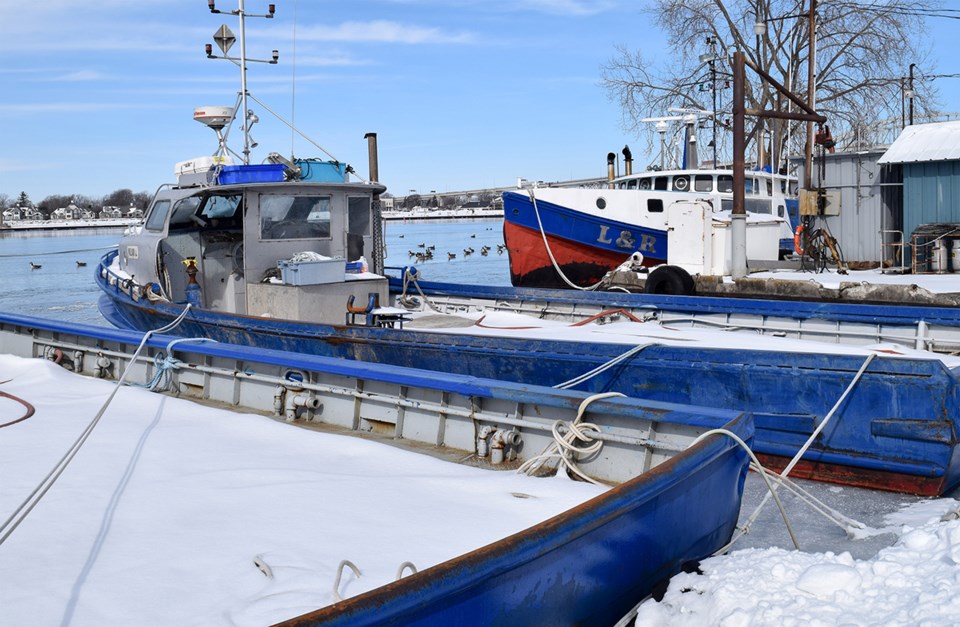Cathy Dobson
Tim Purdy gets a little emotional when he talks about his son Josiah becoming the fifth generation to work at the family fishery in Point Edward.
“It’s good to see your kids want to be involved,” Purdy says.

Though proud his son is part of a thriving business that’s operated for nearly 120 years, he’s worried too.
“We’re trying to figure out how to stop the Asian carp,” Purdy recently told a Golden K Kiwanis Club meeting. “They are the biggest threat to the Great Lakes. I find them just scary.”
Asian carp are a group of invasive fish introduced to U.S. rivers and lakes that have made their way north.
“They eat everything, wipe out everything,” Purdy said. They’ll devastate sport fishing, commercial fisheries and upset the ecosystem.
Electric fences are installed in the water south of Chicago to block Asian carp, but Purdy said it may only be a matter of time before they invade and flourish in Canadian waters.
“I’m worried they’ve let it go too long,” he said.
Last summer, Purdy’s crews caught a single grass carp, one of the four species (grass, silver, bighead and black) known collectively as Asian carp, and called the Department of Fisheries and Oceans.
“We were the only ones that caught one in the province (in 2018),” he said. “It’s only one, but it’s scary.”
Another invasive species, zebra mussels, arrived in the Great Lakes nearly 30 years ago and continue to be a nuisance, he said. Though they shred fishing nets and eat valuable plankton, they have not devastated fish stocks as once expected, he added.
“The new one we worry about is the spiny water flea. We found a lot up near Bayfield this year. No one knows the long-term effect.”
Nevertheless, Purdy Fisheries had a great year in 2018 and pickerel populations are “going through the roof,” he said.
“Lake Huron is special. Most years the quota goes up or down only 10%.” The fluctuation is far larger in Lake Erie.
Purdy’s nine boats harvest mostly pickerel, perch and whitefish and supply restaurants as far away as Montreal, Toronto and New York City. Currently, the docks are quiet for a few weeks when the ice is in, but fishing will likely resume the first week of March.
“I watch every day for the ice to break up,” Purdy said. “We only use one boat in the winter to bring in whitefish. The prices are really good for us when we can get out there.”
Purdy’s, one of about 10 commercial fisheries on Lake Huron, was established in Point Edward by Tim Purdy’s great grandfather in 1900. In the early days, William Jeremiah Purdy used a pair of hoop nets to fish in Sarnia Bay.
Today, Purdy’s is licenced to fish the waters from Sarnia to Kincardine. Ten fishers employed by the family use trap nets, which allow incidental catch to be returned to the water.
Fish and chips are available year-round Fridays and Saturdays at the store overlooking the St. Clair River. In another three months, Purdy’s outdoor restaurants will open at Point Edward and Grand Bend locations.
The fishery is also part of an ongoing project to restore sturgeon populations. Staff work with government officials from Michigan and Ontario to keep sturgeon captured in their nets and harvest the eggs and sperm, then release young sturgeon into Ohio’s Maumee River.
“We were successful for the first time in October,” said Purdy. “It’s a really great project and a chance for us to give back.”
